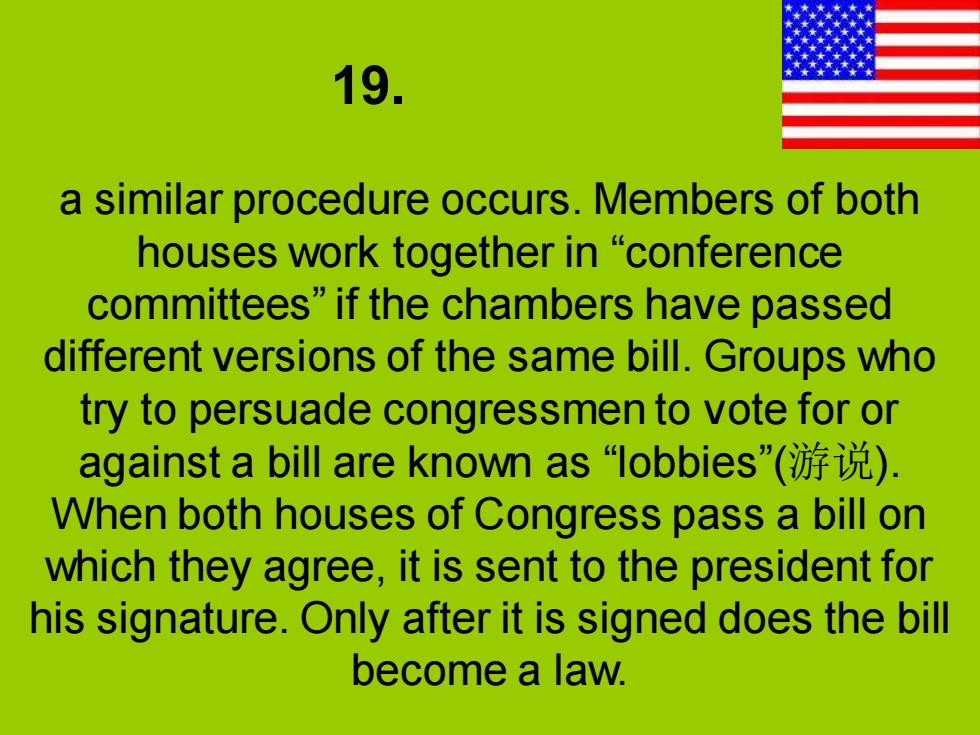
a similar procedure occurs.Members of both houses work together in "conference committees"if the chambers have passed different versions of the same bill.Groups who try to persuade congressmen to vote for or against a bill are known as“"lobbies"(游说). When both houses of Congress pass a bill on which they agree,it is sent to the president for his signature.Only after it is signed does the bill become a law
19. a similar procedure occurs. Members of both houses work together in “conference committees” if the chambers have passed different versions of the same bill. Groups who try to persuade congressmen to vote for or against a bill are known as “lobbies”(游说). When both houses of Congress pass a bill on which they agree, it is sent to the president for his signature. Only after it is signed does the bill become a law
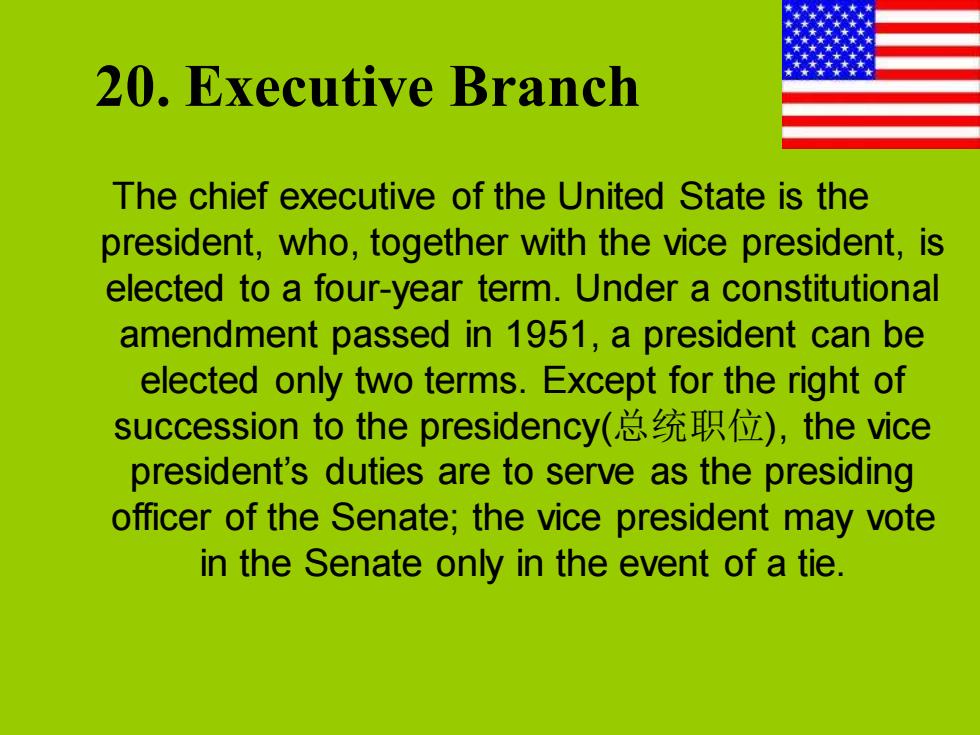
20.Executive Branch The chief executive of the United State is the president,who,together with the vice president,is elected to a four-year term.Under a constitutional amendment passed in 1951,a president can be elected only two terms.Except for the right of succession to the presidency(总统职位),the vice president's duties are to serve as the presiding officer of the Senate;the vice president may vote in the Senate only in the event of a tie
20. Executive Branch The chief executive of the United State is the president, who, together with the vice president, is elected to a four-year term. Under a constitutional amendment passed in 1951, a president can be elected only two terms. Except for the right of succession to the presidency(总统职位), the vice president’s duties are to serve as the presiding officer of the Senate; the vice president may vote in the Senate only in the event of a tie
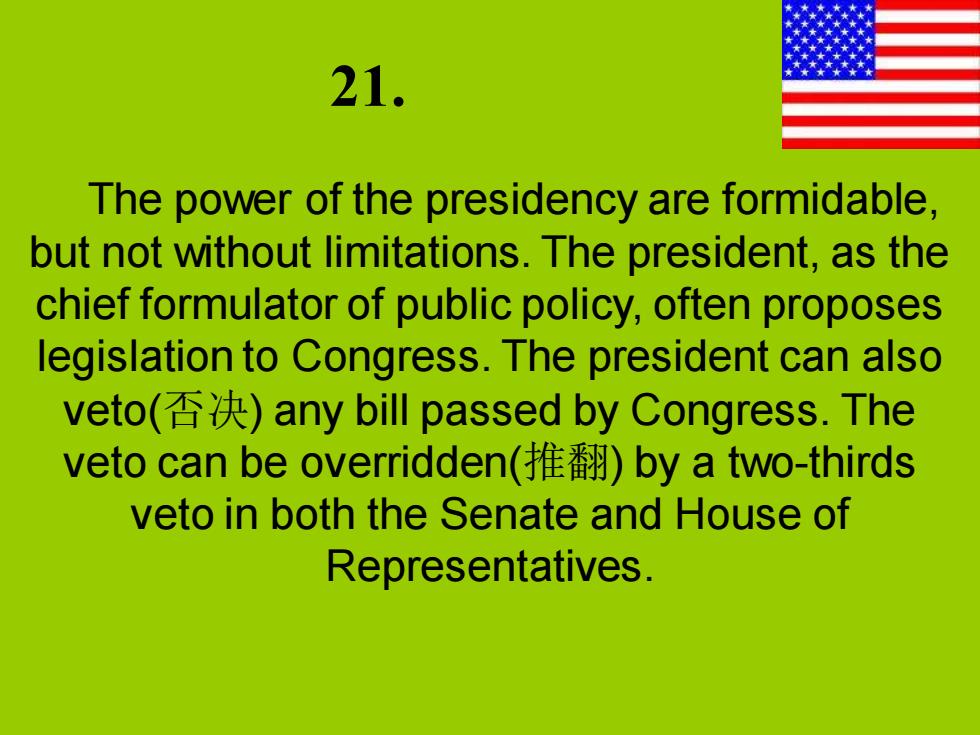
21. The power of the presidency are formidable, but not without limitations.The president,as the chief formulator of public policy,often proposes legislation to Congress.The president can also veto(否决)any bill passed by Congress.The veto can be overridden(推翻)by a two--thirds veto in both the Senate and House of Representatives
21. The power of the presidency are formidable, but not without limitations. The president, as the chief formulator of public policy, often proposes legislation to Congress. The president can also veto(否决) any bill passed by Congress. The veto can be overridden(推翻) by a two-thirds veto in both the Senate and House of Representatives
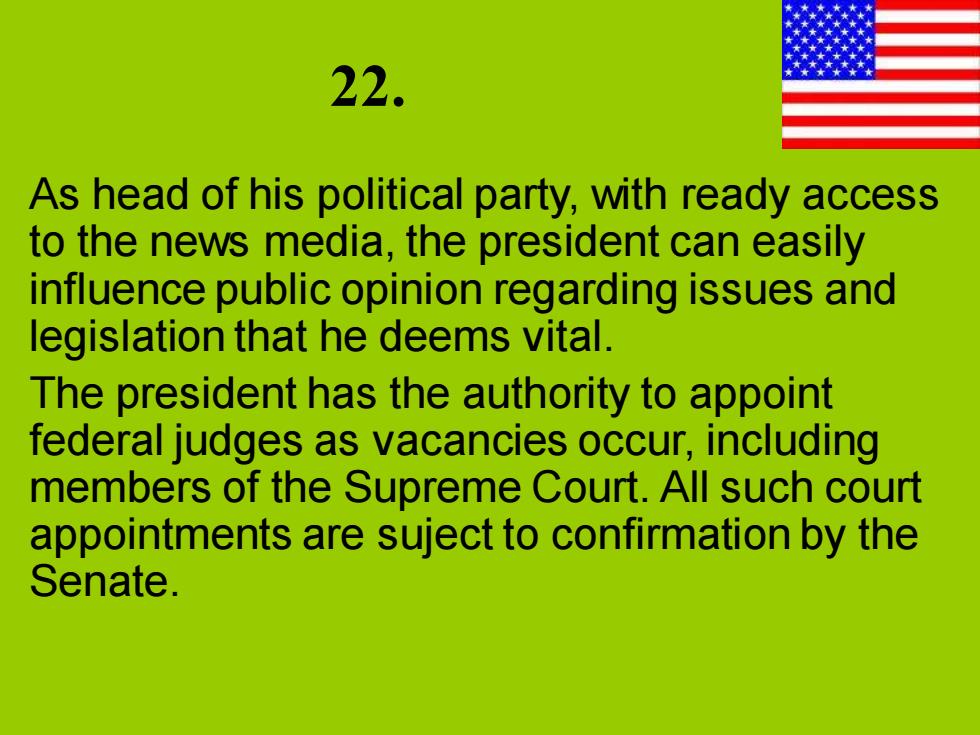
22. As head of his political party,with ready access to the news media,the president can easily influence public opinion regarding issues and legislation that he deems vital. The president has the authority to appoint federal judges as vacancies occur,including members of the Supreme Court.All such court appointments are suject to confirmation by the Senate
22. As head of his political party, with ready access to the news media, the president can easily influence public opinion regarding issues and legislation that he deems vital. The president has the authority to appoint federal judges as vacancies occur, including members of the Supreme Court. All such court appointments are suject to confirmation by the Senate
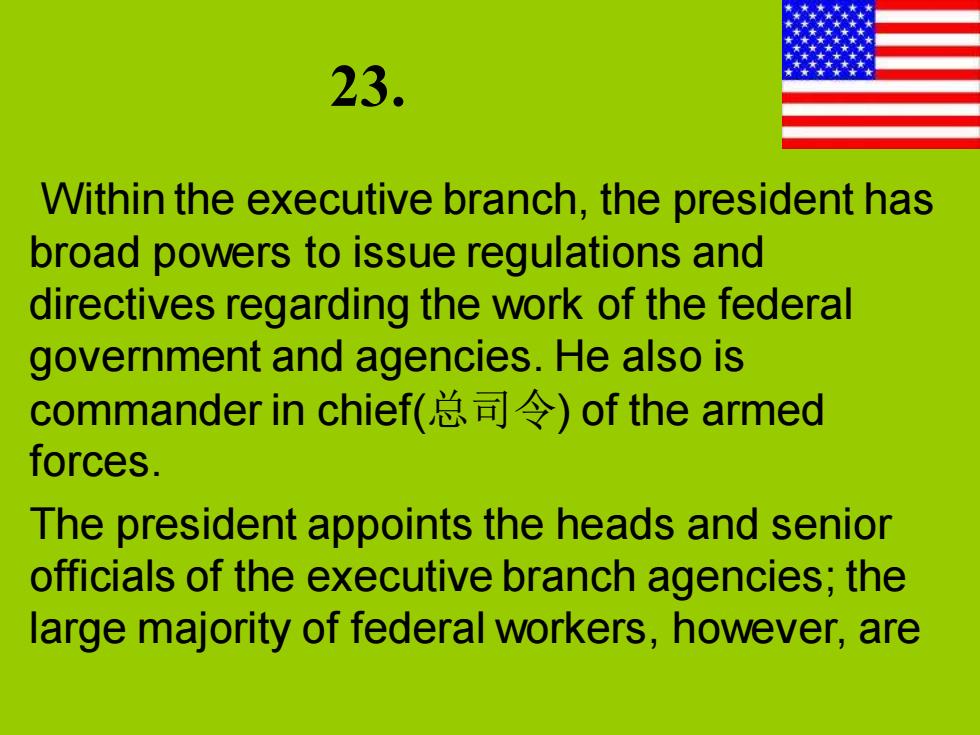
23. Within the executive branch,the president has broad powers to issue regulations and directives regarding the work of the federal government and agencies.He also is commander in chief(总司令)of the armed forces. The president appoints the heads and senior officials of the executive branch agencies;the large majority of federal workers,however,are
23. Within the executive branch, the president has broad powers to issue regulations and directives regarding the work of the federal government and agencies. He also is commander in chief(总司令) of the armed forces. The president appoints the heads and senior officials of the executive branch agencies; the large majority of federal workers, however, are
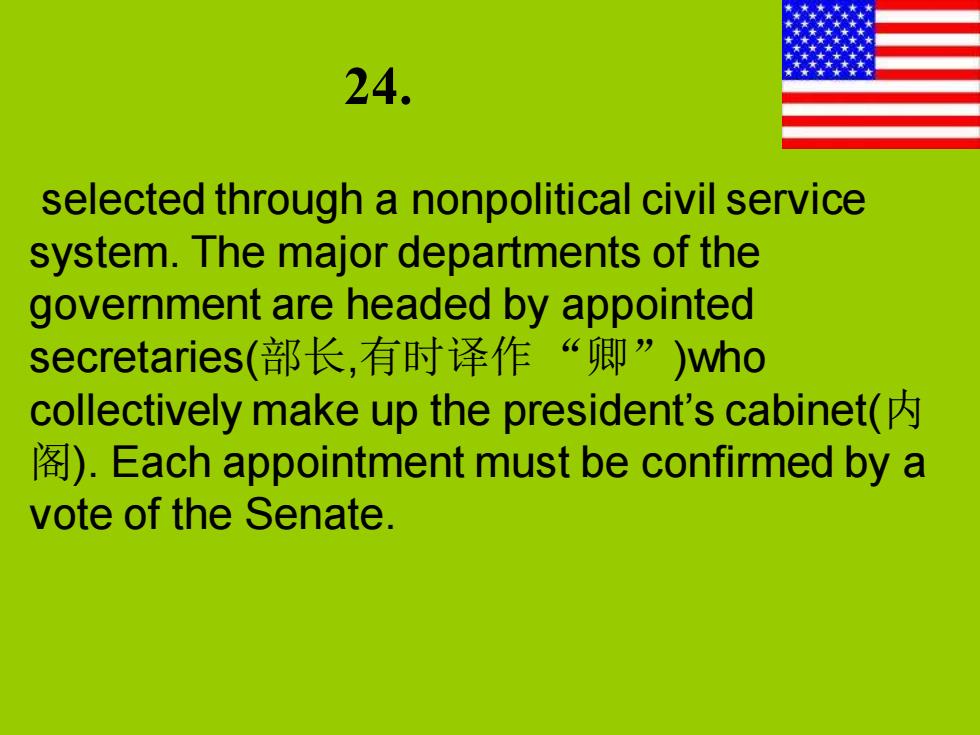
24. selected through a nonpolitical civil service system.The major departments of the government are headed by appointed secretaries(部长,有时译作“卿”)who collectively make up the president's cabinet( )Each appointment must be confirmed by a vote of the Senate
24. selected through a nonpolitical civil service system. The major departments of the government are headed by appointed secretaries(部长,有时译作 “卿”)who collectively make up the president’s cabinet(内 阁). Each appointment must be confirmed by a vote of the Senate